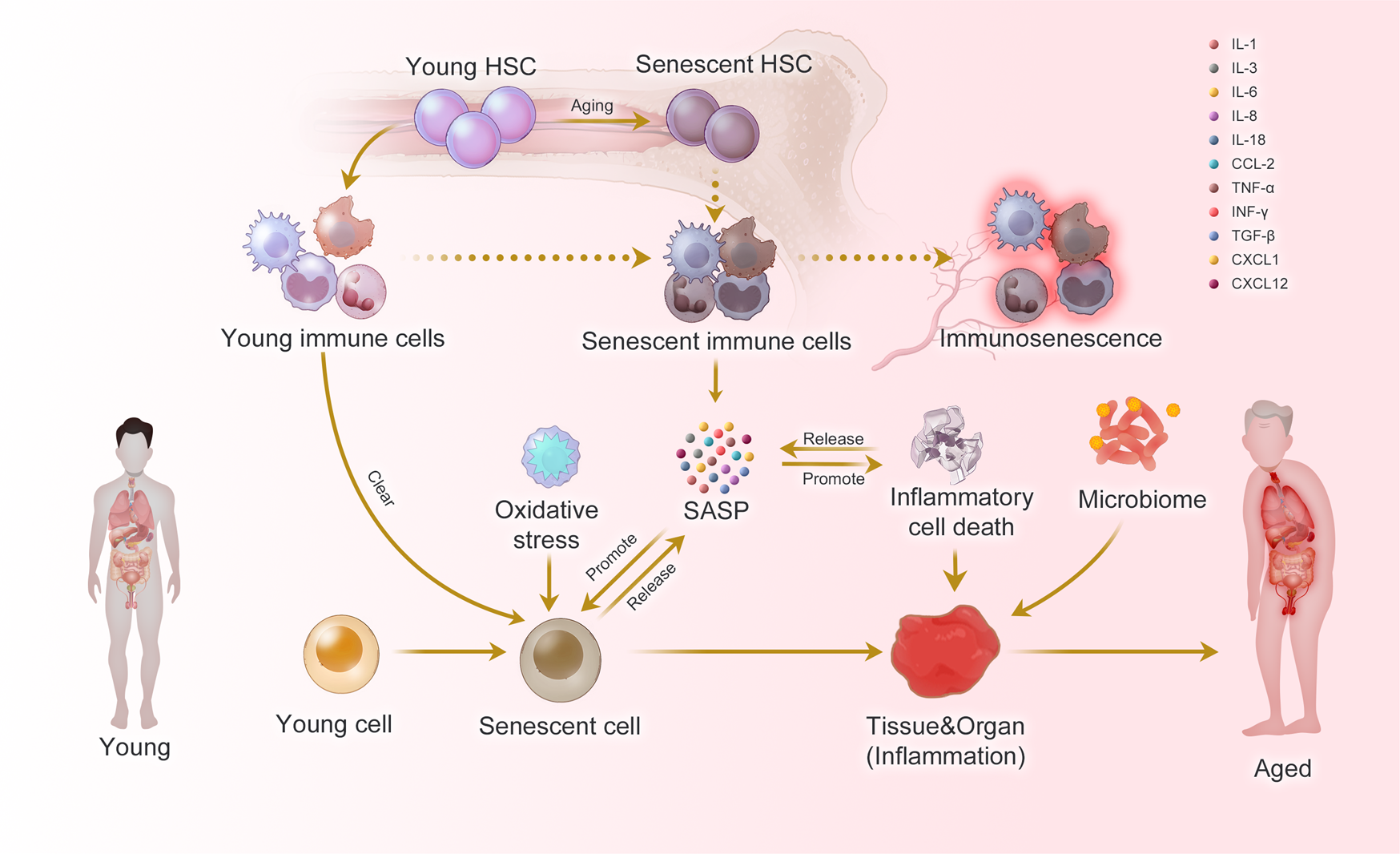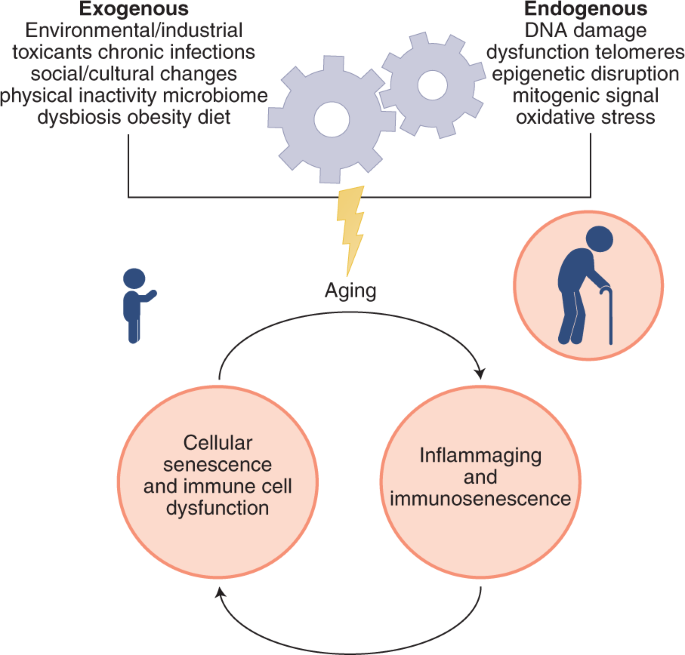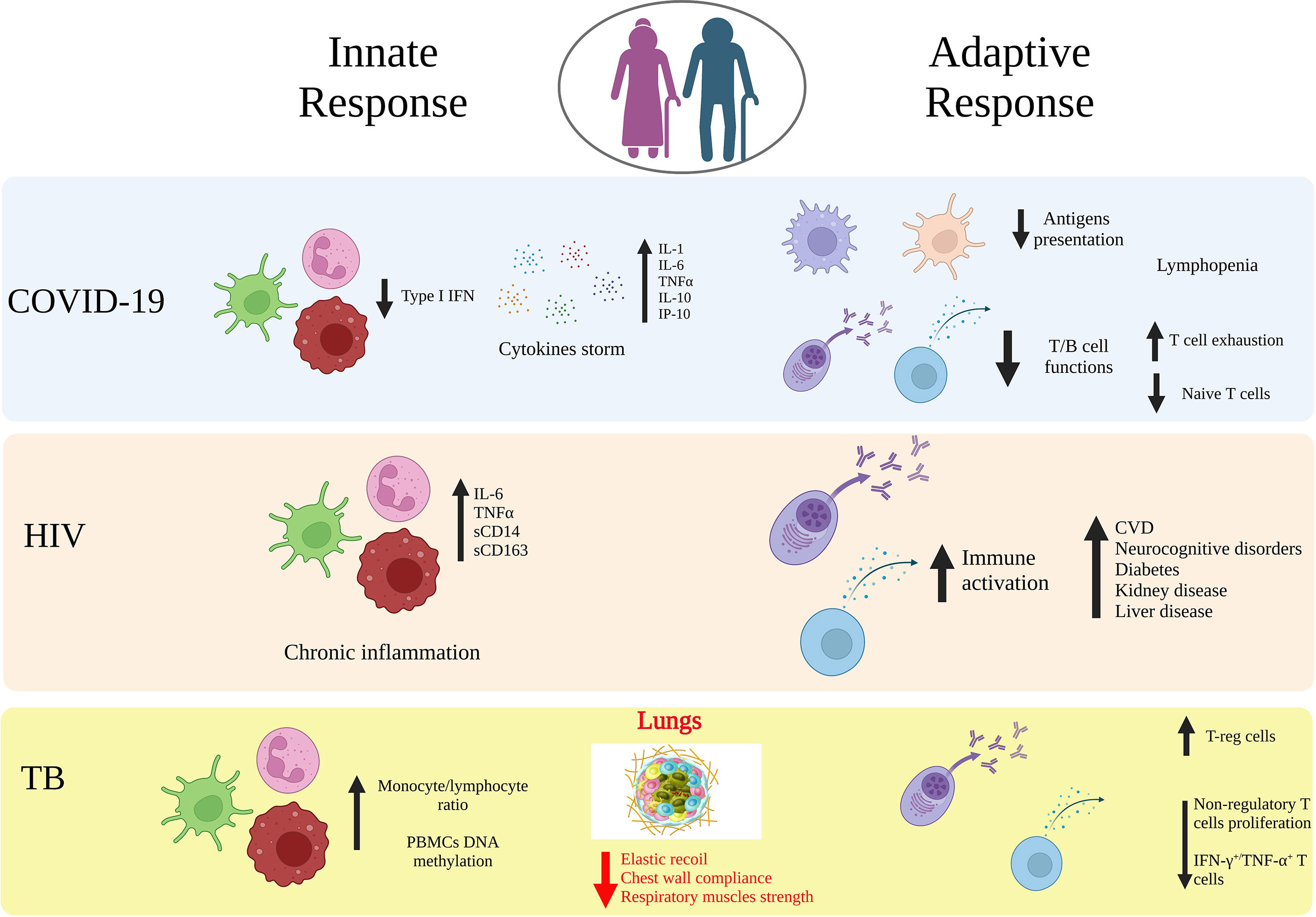Reference




Moonshot's Answer
The key findings about cytokine production in elderly people include:
-
"Inflamm-aging": A dysregulation of the cytokine network and its homeostasis is common in aging and age-related diseases, leading to chronic low-grade inflammation. Source
-
Increased baseline cytokine levels: Older individuals have greater baseline levels of both pro- and anti-inflammatory cytokines compared to younger participants. Source
-
Higher IL-10 production: Elderly people have higher IL-10 serum levels and production by both lymphocytes and monocytes, which increases with age. Source
-
Progressive increase in pro-inflammatory cytokines: Aging is accompanied by a progressive increase in pro-inflammatory cytokine status. Source
-
Exercise moderation: Exercise can moderate cytokine production in aging, helping to prevent disease and lower the risk of falls. Source
-
Cytokine dysregulation: Aging is associated with various changes in immune parameters, alterations in lymphocyte subsets, and cytokine dysregulation. Source
-
Reproducibility of serum cytokines: Serum levels of selected cytokines display fair to excellent within-person temporal reproducibility among elderly individuals. Source
-
Diminished cytokine secretion by Th1 and Th2 cells: The levels of cytokines secreted by Th1 and Th2 cells diminish with age, reducing the body's ability to defend against external pathogens. Source
These findings highlight the complex changes in cytokine production associated with aging and their potential impact on health and disease susceptibility in elderly individuals.
Follow Up
Related
How do proinflammatory cytokine levels differ in vascular injury and Alzheimer's disease?
What is the relationship between cytokine levels and systemic sclerosis involvement?
What does the serological landscape of cytokines look like in cutaneous melanoma?
How does cytokine production by CD4+ cells change in centenarians?